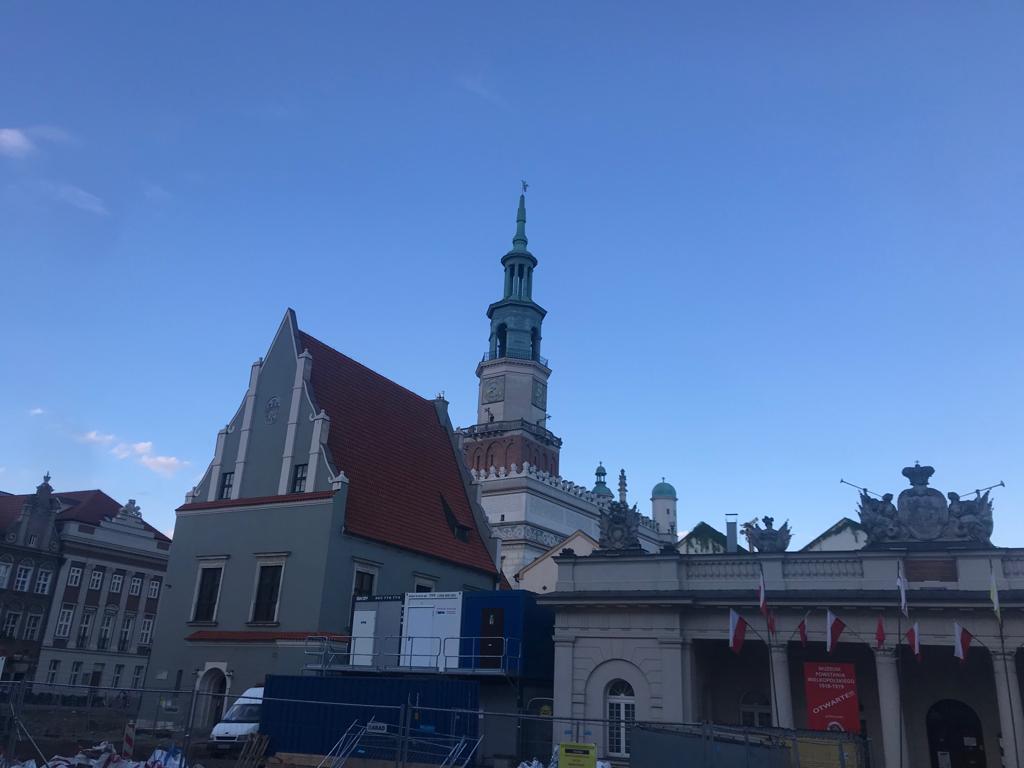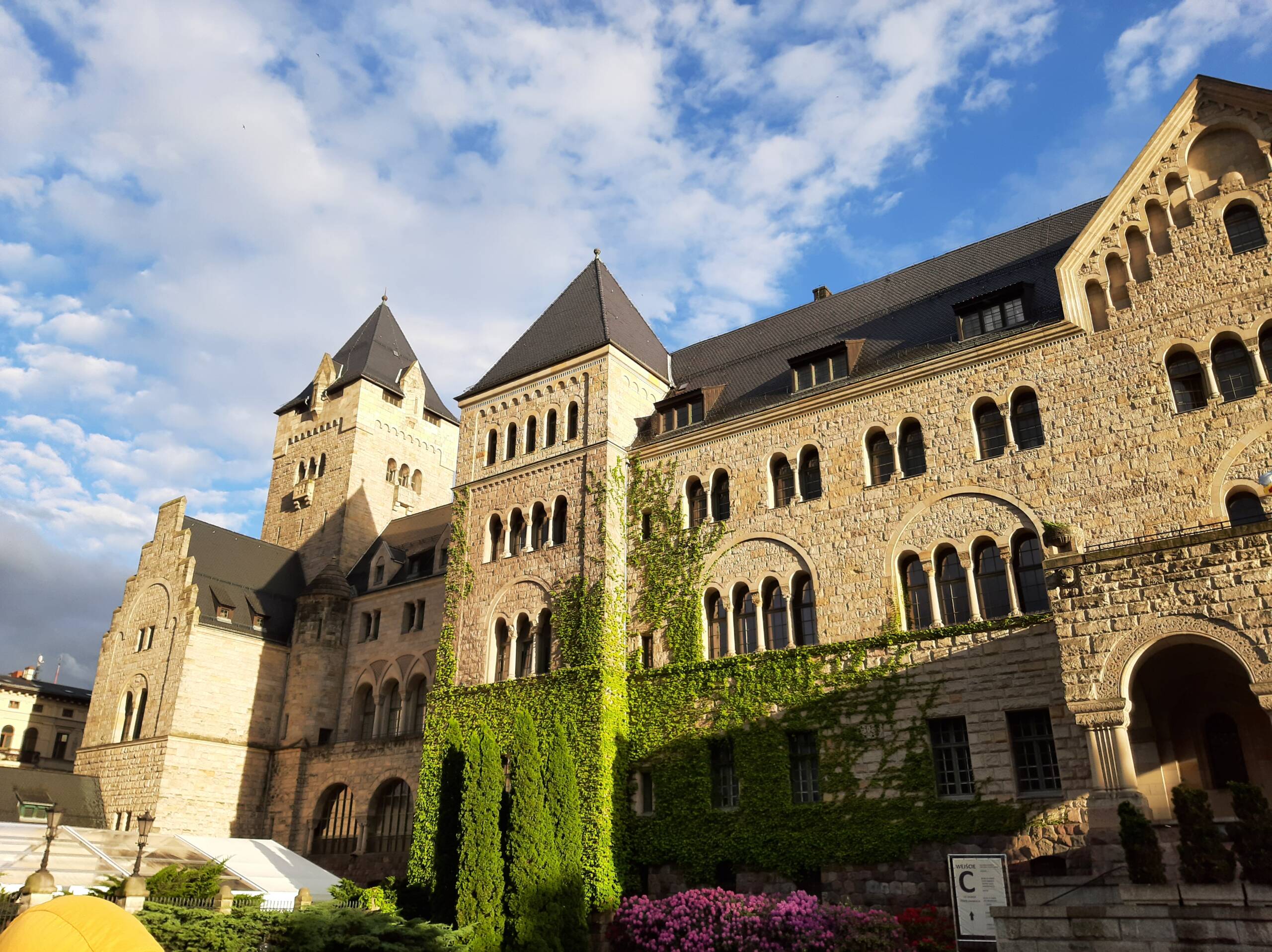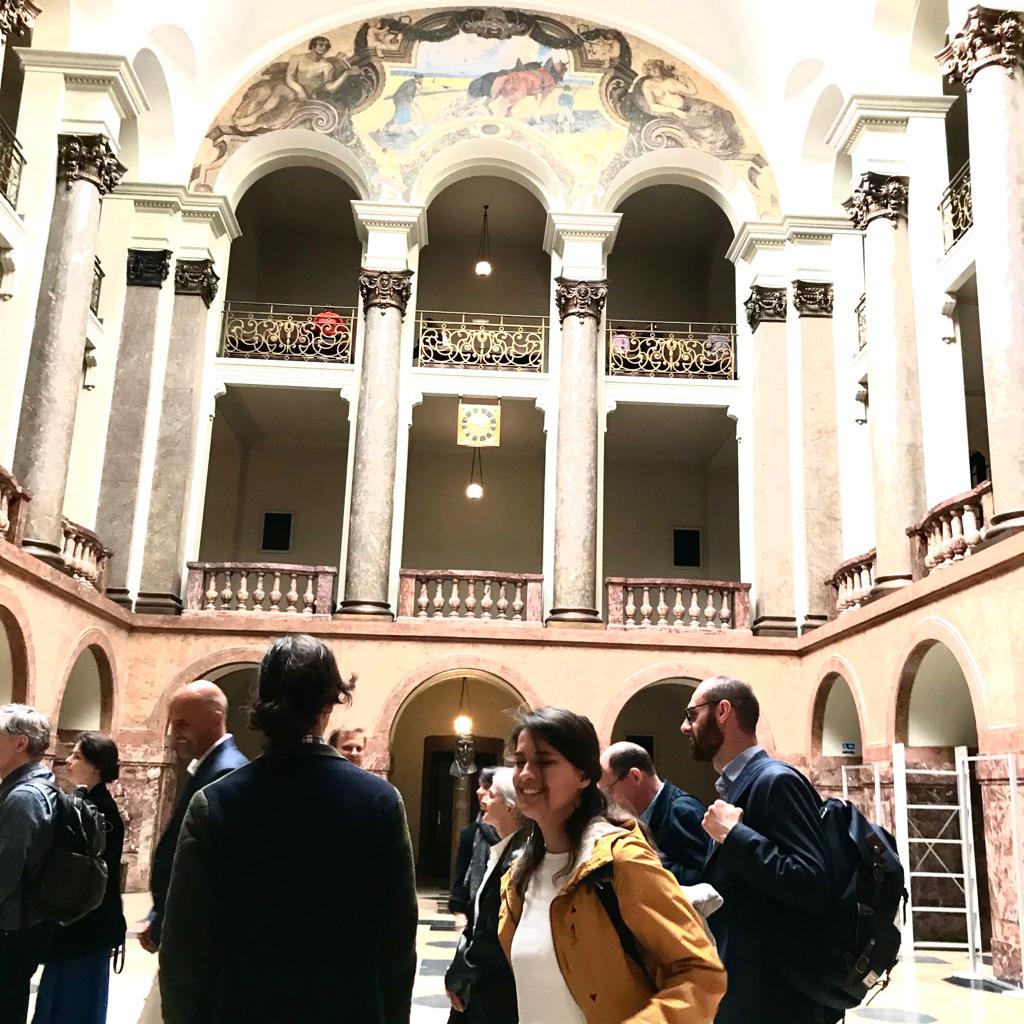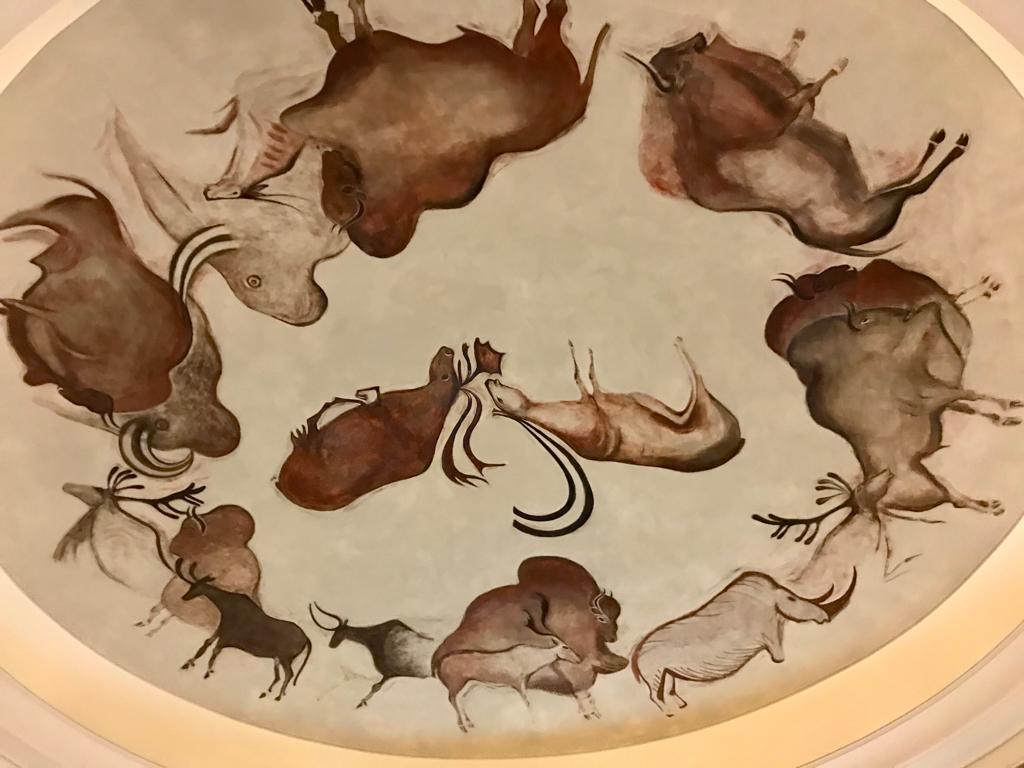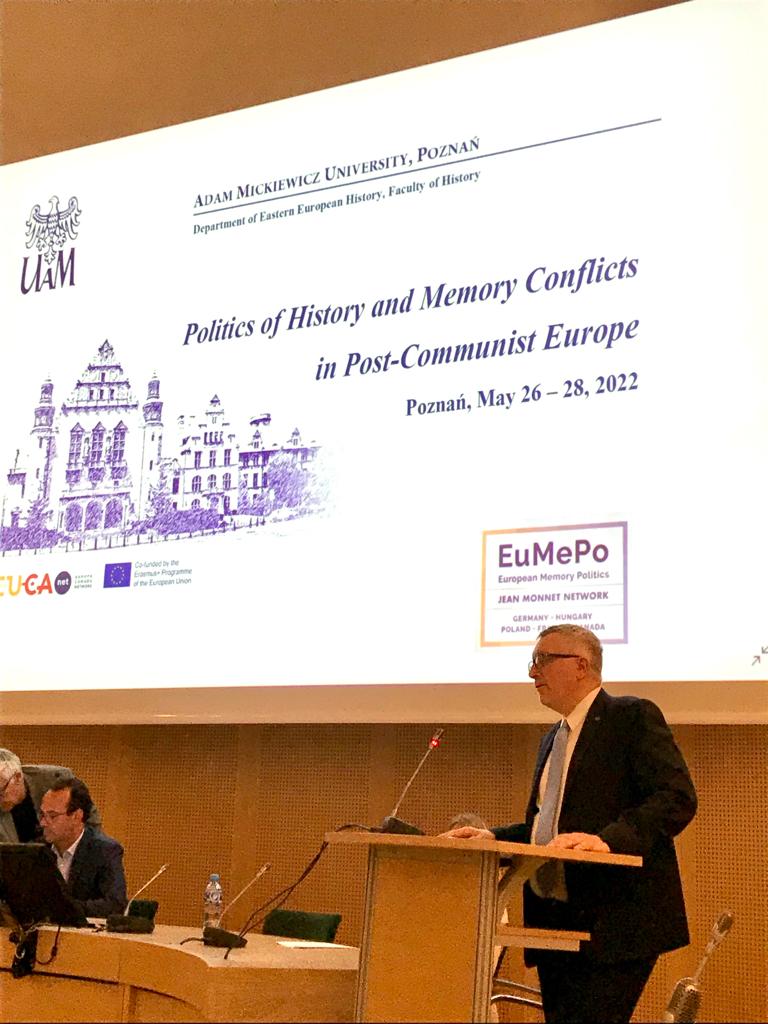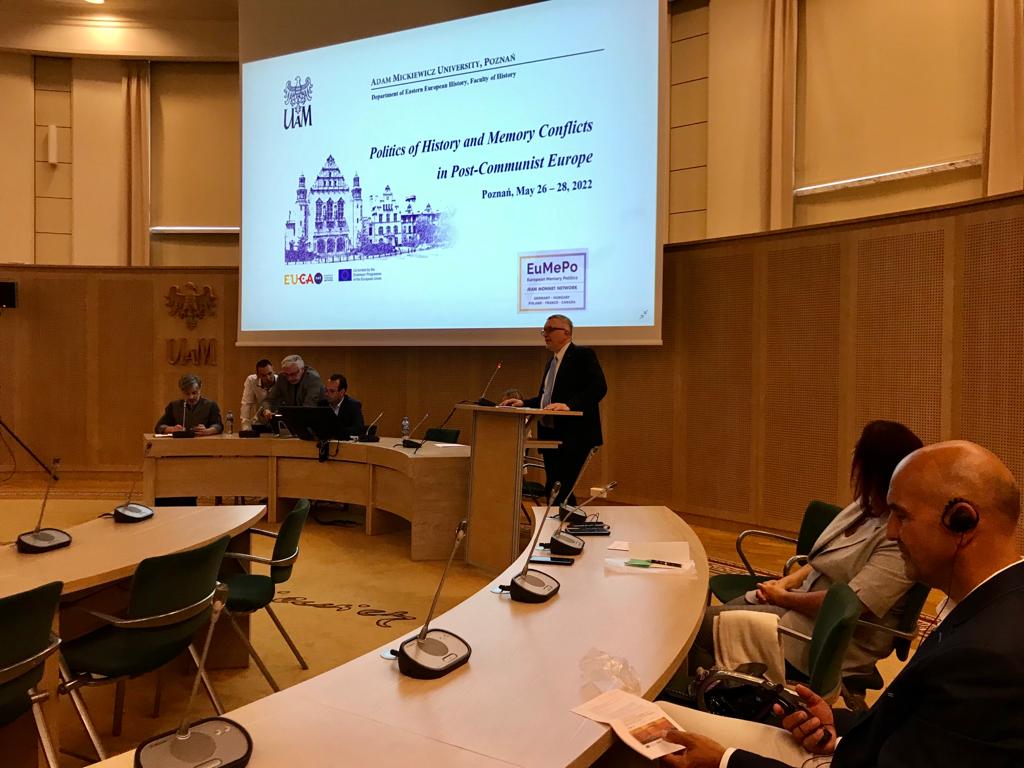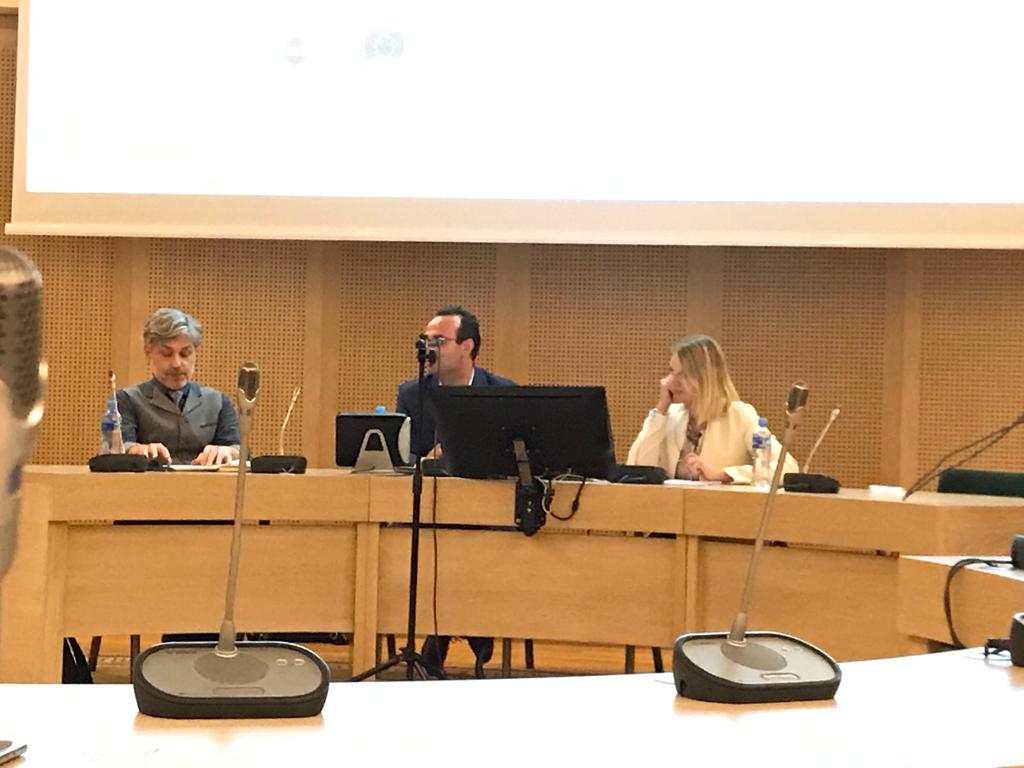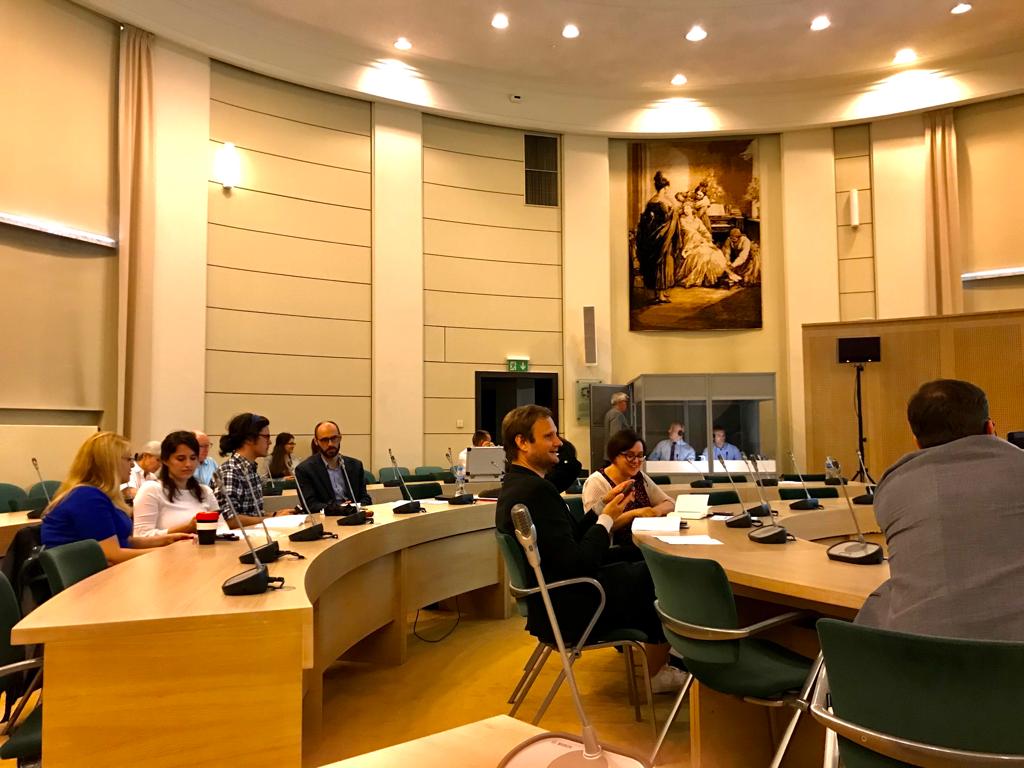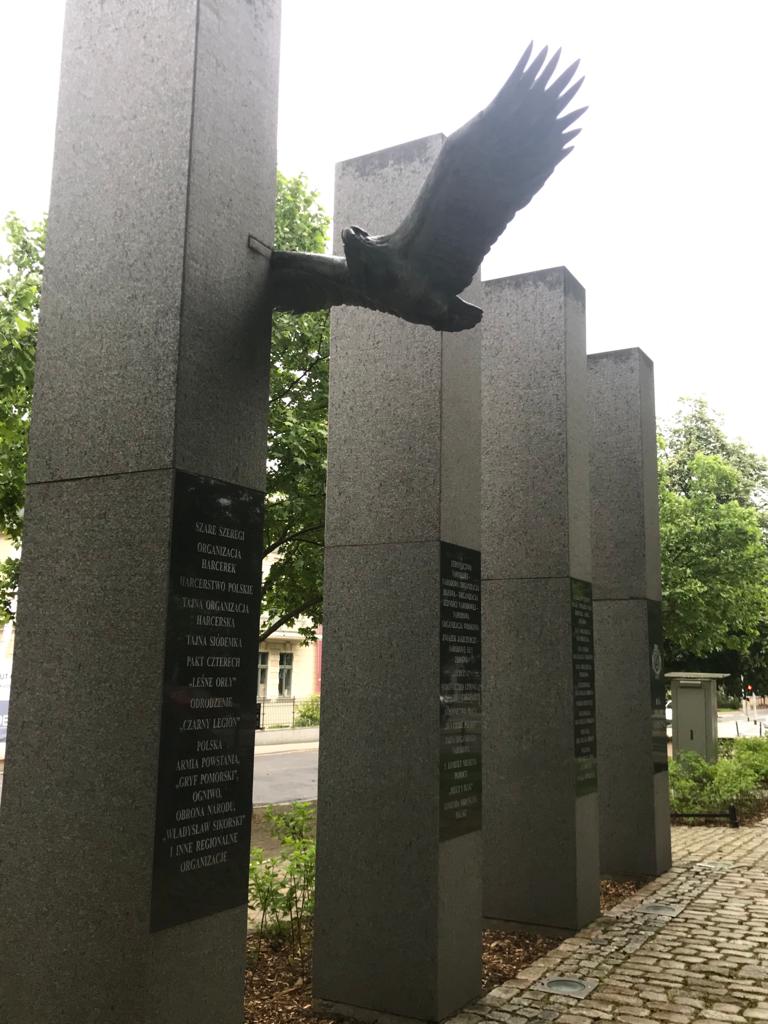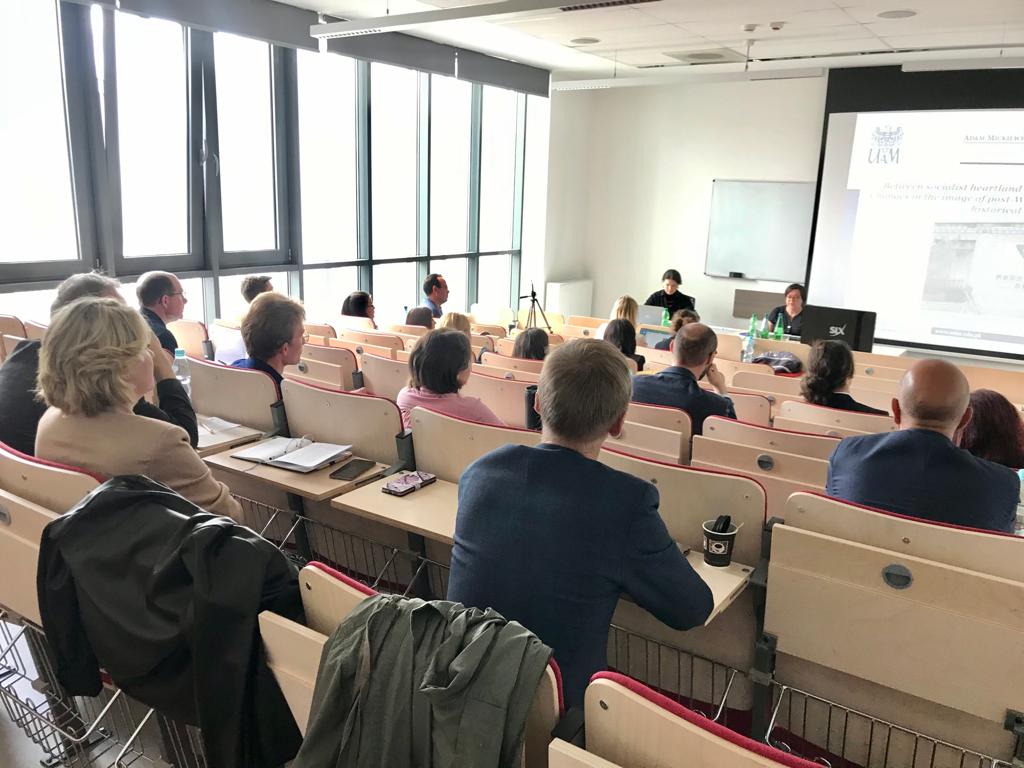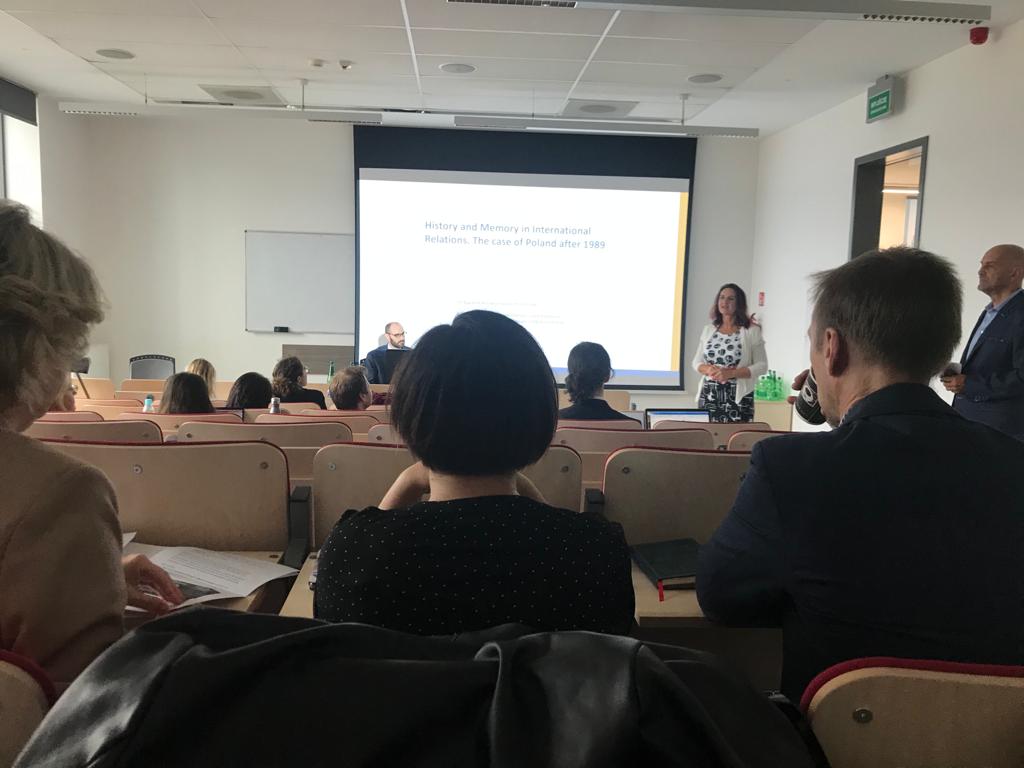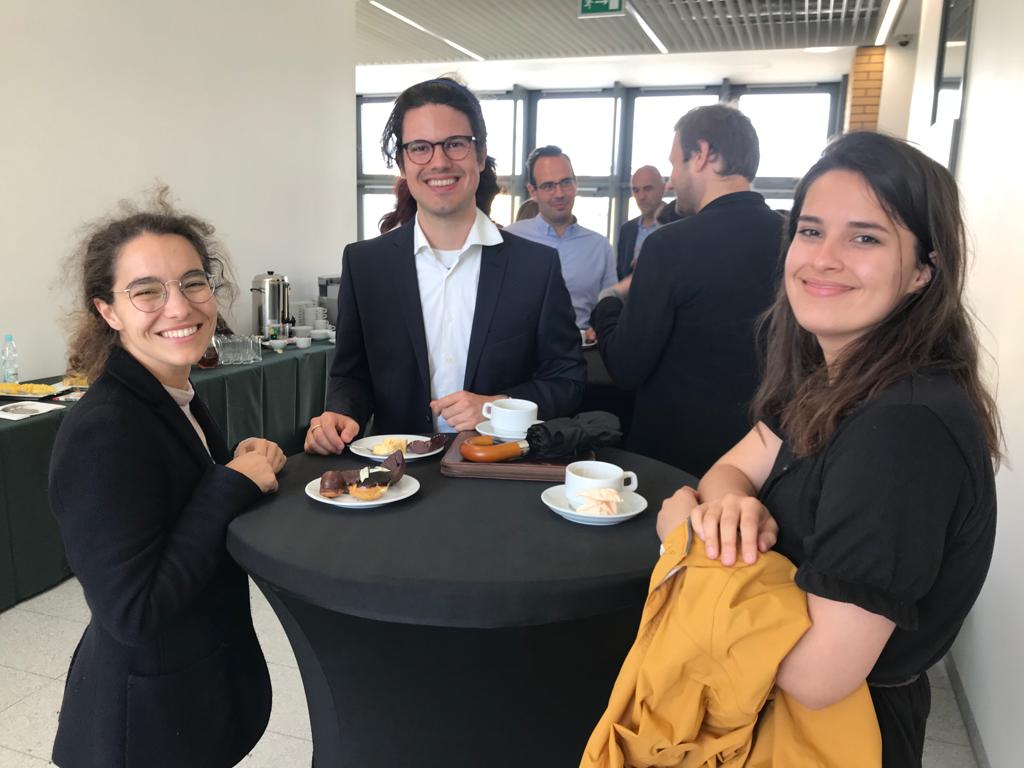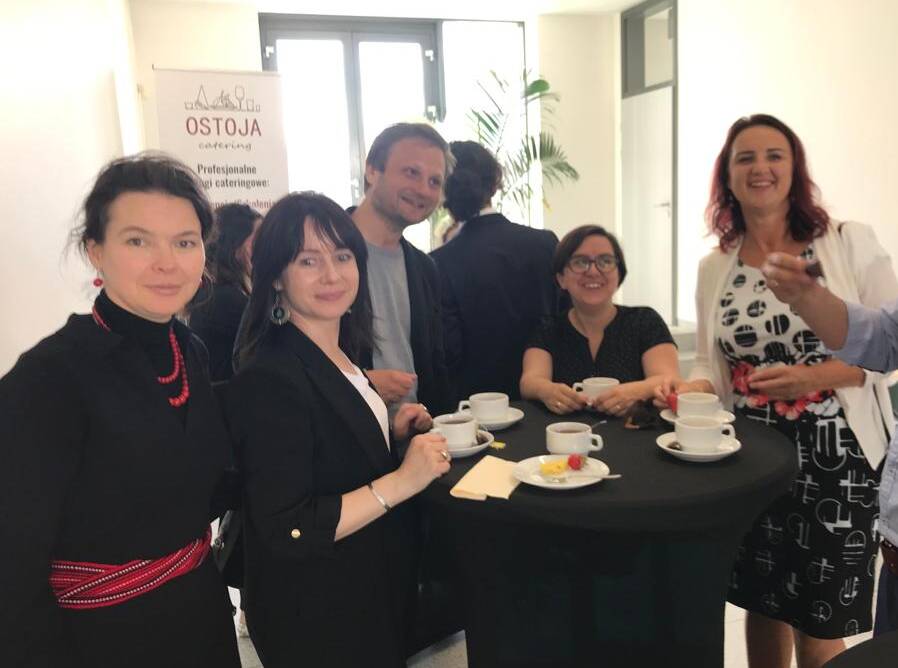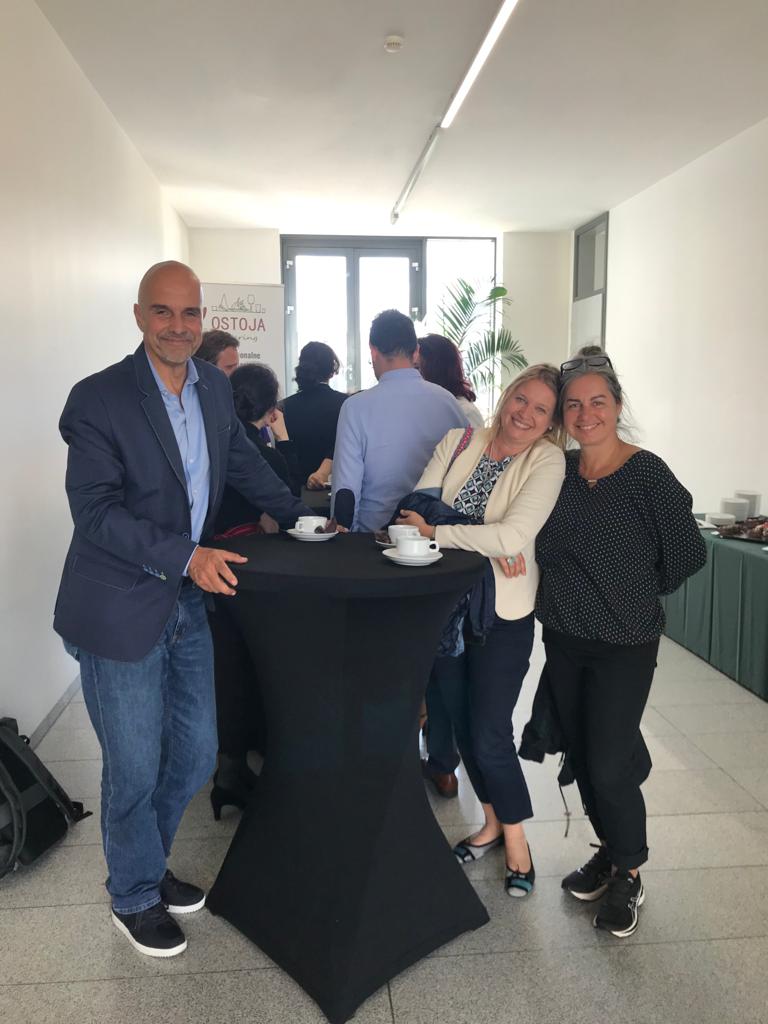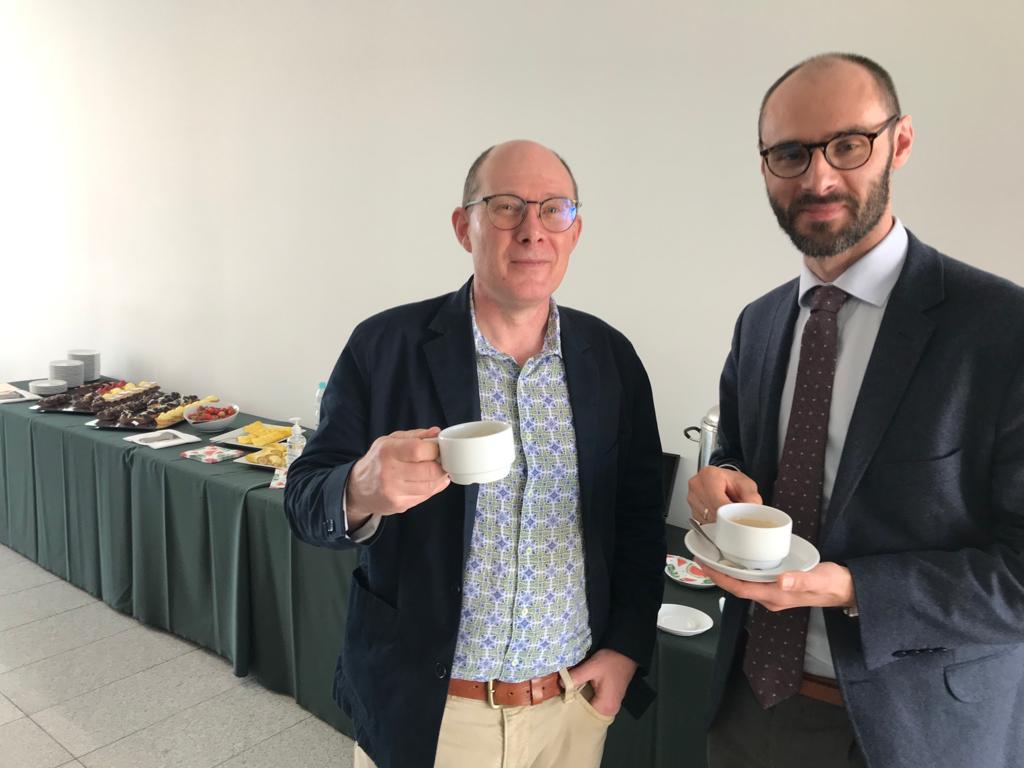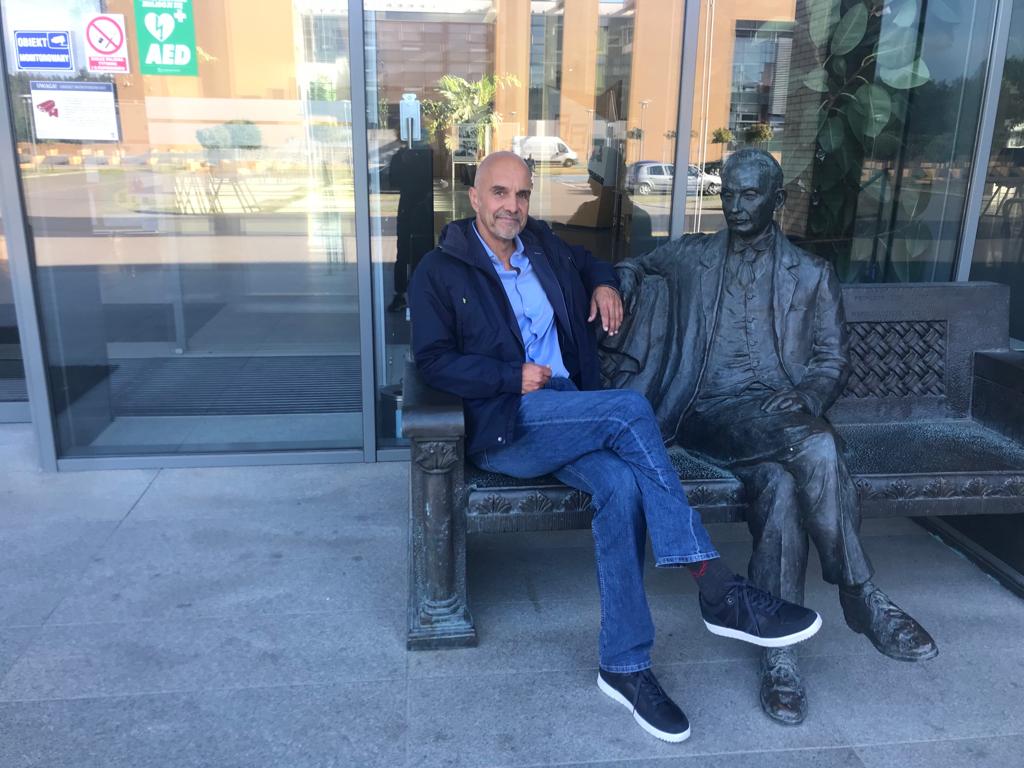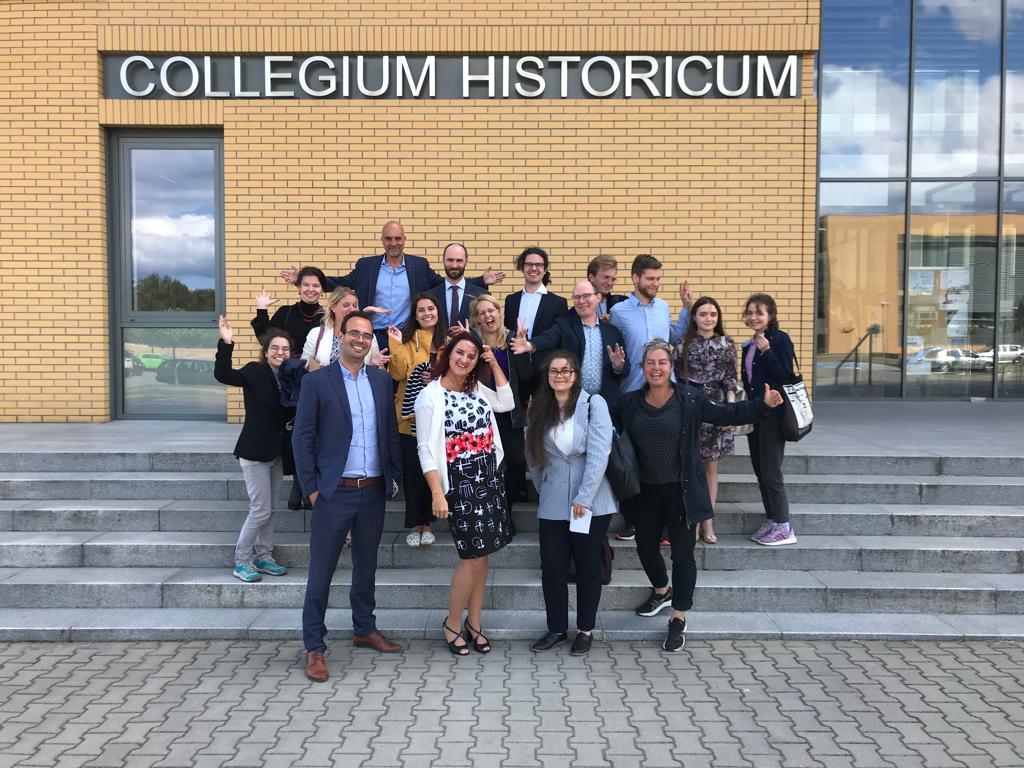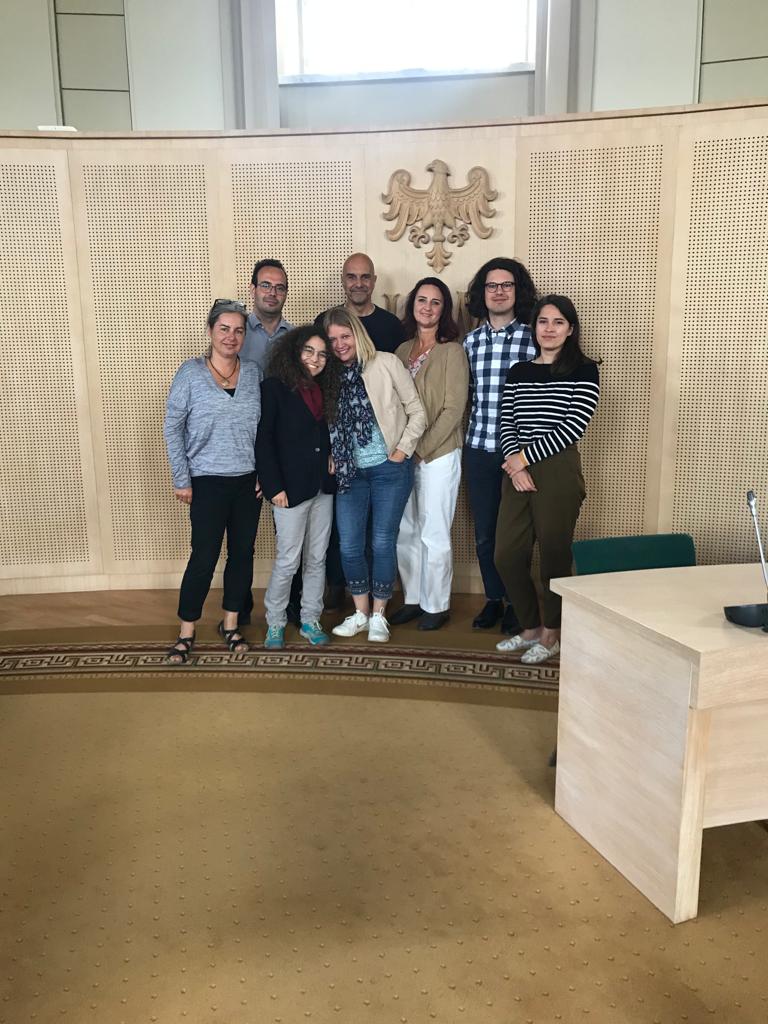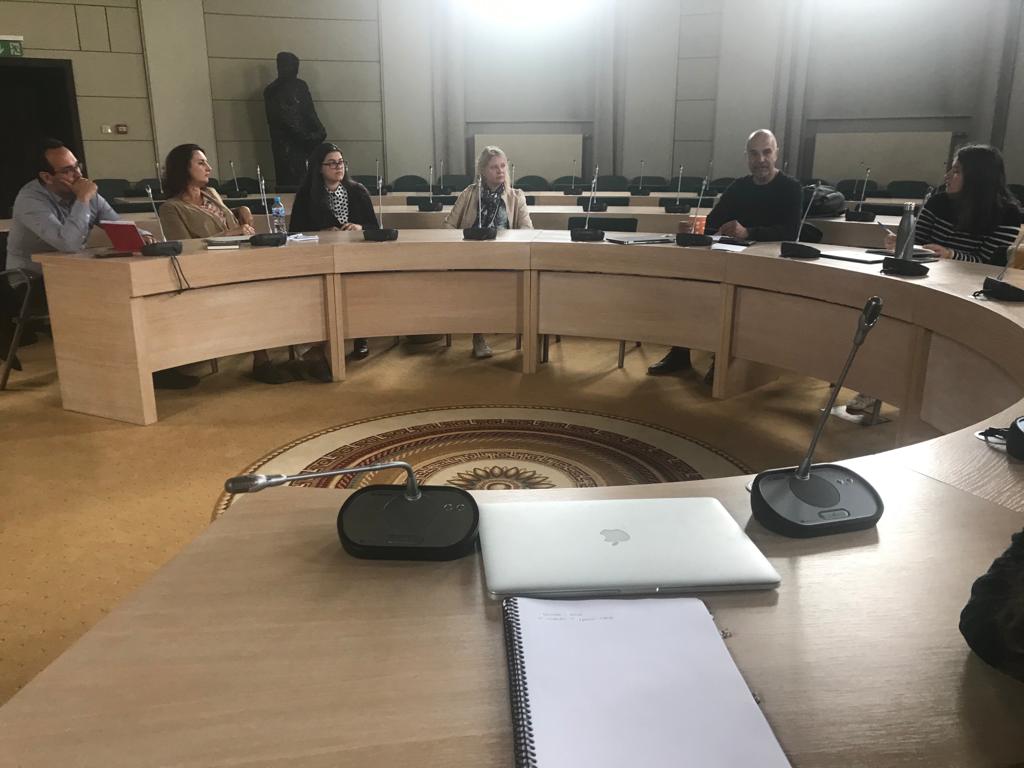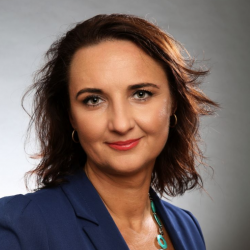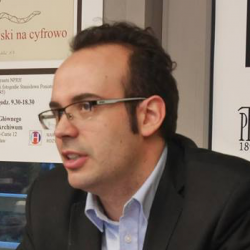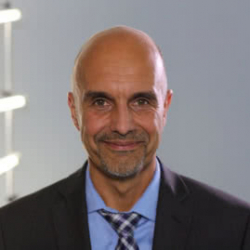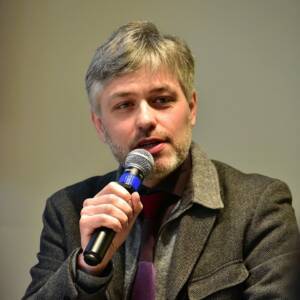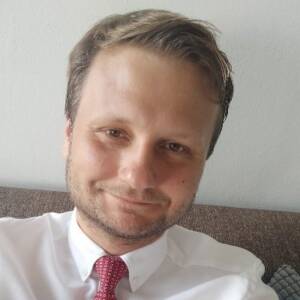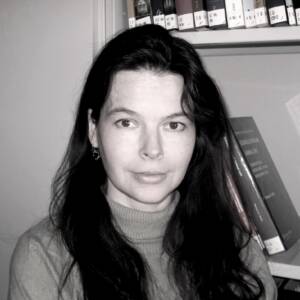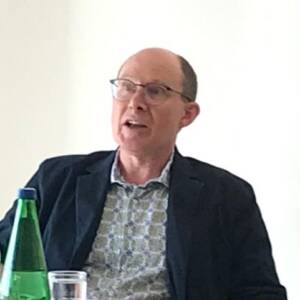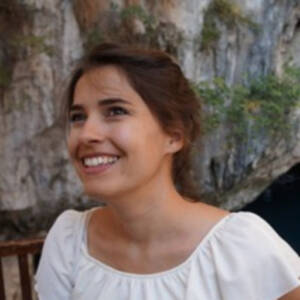Poznań Conference Summary

From May 26th to May 28th, 2022, EUCAnet’s European Memory Politics (EuMePo) Jean Monnet Network organized a conference in collaboration with the Department of Eastern European History at Adam Mickiewicz University (AMU) in Poznan, Poland. The lead Polish organizers were Beata Halicka and Piotr Oleksy, both Professors of history at AMU, and the panel participants were a selection of top scholars and analysts from across Europe (plus one from Canada) who specialize in memory studies.
The theme of the conference was memory politics in Central and Eastern Europe, specifically eight countries that fall within the broader Post-Communist sphere: Poland, Estonia, Latvia, Lithuania, Romania, Ukraine, Russia, and Hungary. Over the course of three days, the aim was to unpack the distinct memory conflicts and dynamics at play across the region, bringing different national and disciplinary perspectives into conversation. Furthermore, while not an overt theme of the conference, tracing the varying national responses to the Ukraine-Russia war was a running thread of discussion.
Day One opened with welcoming remarks from Rafal Witkowski, Vice Rector for international cooperation at AMU, Oliver Schmidtke, Director of the Centre for Global Studies at the University of Victoria and Co-Director of EUCAnet, and Beata Halikca. This was followed by our keynote panel discussion led by Jarosław Kuisz and Birte Wassenberg and chaired by Piotr Oleksy of AMU.
This first panel introduced some of the key issues that would be tackled by subsequent panels, such as the different perspectives of Western and Post-Communist Europe, the feasibility of a shared European memory culture, and the broader significance of Putin’s invasion. Birte Wassenberg began the conversation by arguing that the project of European integration has always been defined by memory politics, specifically the effort to construct a shared identity around “a European memory of peace.” Later, Birte Wassenberg emphasized the commonalities between Western and Central/Eastern experiences, namely the ways in which both ‘sides’ have crafted themselves in opposition to Soviet domination. Jarosław Kuisz, in contrast, discussed at length the “gap in expectations” between Western and Post-Communist states, both after the breakup of the Soviet Union and in the wake of the Ukraine-Russia war. In contrast to Germany or France, he argued, “[Poland’s] opinions are based on the political experience of tyranny.” The memory of Communist oppression has, in Jarosław Kuisz’s term, resulted in “a nervous sovereignty.” Piotr Oleksy chimed in at various points, often agreeing that Europe faced fundamental divisions based on different historical memories and collective experiences, especially in relation to the Soviet Union/ Russia.
The panel discussion was followed by a lively Q&A session, which included questions on the efficacy of blackmail and military strength in dealing with Putin, the significance of the United States (and NATO) in Europe’s immediate future, and the tools that can be utilized to construct a supranational European identity.
Day Two involved three panel discussions followed by Q&A sessions. Each panelist addressed a specific case study, discussing completed or ongoing memory politics research.
The first panel included three EU case studies – Poland, the Baltic states, and Romania – and was chaired by Oliver Schmidtke. Bartosz Dziewanowski began with a discussion of Poland, specifically how the Polish government has used memory and trauma as crucial tools of foreign policy. His presentation looked at Polish government decrees and popular culture, demonstrating how changing presentations of victimhood and historic suffering continue to shape Poland’s diplomacy towards Germany, Russia, and the rest of Europe. Beata Halicka’s presentation concerned the Baltic states – Estonia, Latvia, and Lithuania – and the different ways in which each country remembers the Soviet occupation. She examined the ongoing controversy surrounding Soviet monuments that still stand in the Baltic, as well as the development of national museums dedicated to the occupation; Beata Halicka concluded that all three countries (albeit in different ways) are witnessing a memory politics shift: from “glorification to victimization and commemoration.” To close the first panel, Kamil Całus zoomed in on Romania, where there is broad sympathy and nostalgia for the Communist past in general and Nicolae Ceaușescu, the former dictator of Romania, in particular; this despite the Romanian Communist party’s history of violent oppression and widespread economic failure. To explain this curiosity, Kamil Caus gave a sweeping account of the insecurities and shortcomings of modern Romanian politics, suggesting that ‘Communist nostalgia’ is driven by a popular desire for “dignity, independence and stability.”
Our second panel was chaired by Alina Cherviatsova and focused in on two non-EU case studies: Ukraine and Russia. Marta Studenna-Skrukwa tackled the Ukrainian case with her examination of historical discourse, Soviet-era monuments, and Ukrainian school history textbooks. The overall purpose of her talk was to consider the development of Ukraine’s relationship with its past, especially regarding Ukraine’s stance towards Russia. This development, Marta argued, has been vastly accelerated in the wake of February 24th, as the “attempt to build continuity back to 1917,” to a time before Communist occupation, has been made more urgent. Maria Domańska followed up by exploring the illogical and sometimes disturbing memory politics of Putin’s Russia, in particular how Putin’s interpretation of particular historical grievances directly serves his domestic and foreign policy objectives. She concluded on a forceful note: “Irrational as it may seem, the logic behind Putin’s memory politics is to perpetuate the current regime’s hold on power.”
Last but not least, Matt James chaired a panel of young scholars who discussed very different yet equally fascinating research projects involving Hungary. Judit Molnar presented her ongoing research project concerning the Hungarian diaspora, specifically the ways in which the relationship between the Hungarian state and Hungarian expats has changed over the years. One of the main takeaways was that Hungarians living abroad often experience very different ‘memories’ of Hungary than the official government narrative; another was that the government has treated certain Hungarians living abroad with increasing suspicion and scorn. Diana Bartha then presented a uniquely-constructed database of Hungarian political discourse, examining the prevalence of references to the Holocaust and the 1920 Treaty of Trianon. She showed how such references to the past are becoming increasingly common in a political environment defined by nostalgia and historical grievance.
Day Three involved a meeting of our EuMePo network in order to reflect on the conference and exchange thoughts on future events. It was also an opportunity for the team to discuss and plan future memory politics outputs, including an upcoming book project and a journal special issue.
For those curious to learn more about the above issues, we recommend the short selection of reading materials below. Moreover, stay tuned for updates on our network’s upcoming EuMePo book, the product of over three years of collaborative research and transatlantic exchanges!
Reading List
- America Thinks the War Is About Ukraine. Russia’s Neighbors Disagree, by Karolina Wigura and Jaroslaw Kuisz
- Poland’s Historical Turn – European Memory Politics – a short introduction, by Piotr Oleksy and Beata Halicka
- Germany: Mastering the Past and Reinventing National Identity – European Memory Politics – a short introduction, by Oliver Schmidtke
- Hungary’s Fragmented Historical Memory – European Memory Politics – a short introduction, by Ildikó Barna
- Memory and the future of Europe. Rupture and integration in the wake of total war, by Peter Verovšek
- Medvedev escalates anti-Ukrainian rhetoric, by Maria Domańska
- Dignity on the Prut River, by Piotr Oleksy
- The Polish Wild West – Forced Migration and Cultural Appropriation on the Polish-German Borderlands, 1945-1948, by Beata Halicka
List of Participants (in order mentioned above)
Beata Halicka (PhD) is a professor of contemporary history at the Adam Mickiewicz University in Poznań. She lectured at the European University Viadrina in Frankfurt (Oder) between 2006 and 2014 and was a visiting professor at the universities in Calgary (2014), Chicago (2015) und in 2016 in El Paso (USA). She is author or editor of eight books and has published numerous articles in scholarly journals and edited volumes.
Piotr Oleksy is an associate professor at the AMU in Poznań for the Department of History and a publicist collaborating with leading Polish journals. Scholarly expertise focuses on collective identity dynamics and identity policies in Central and Eastern Europe after collapse of Soviet Union and on international relations in the region.
Oliver Schmidtke (PhD) is Director of the Centre for Global Studies (CFGS) and Jean Monnet Chair in European Politics and History at the University of Victoria. Dr. Schmidtke, a former director of European Studies and president of the European Community Studies Association in Canada (ECSA-C), holds appointments in the departments of Political Science and History. Currently his research focuses on issues of democracy, populism, memory politics, and the labour market.
Jarosław Kuisz (PhD) is the Editor-in-Chief of Kultura Liberalna (Liberal Culture), a media organisation, think tank and NGO based in Poland, and Assistant Professor at the University of Warsaw in the Faculty of Law and Administration. He has a long career in both academia and journalism, as he has taught or researched on both sides of the Atlantic and written for European journals as well as the New York Times.
Birte Wassenberg (PhD) is Professor in Contemporary History at the Institute for Political Studies (IEP) of the University of Strasbourg and member of the Research Institute for History Raymond Poidevin at the UMR Dynamiques européennes. She holds a Jean Monnet Chair and is director of the Master in International Relations.
Bartosz Dziewanowski (PhD) is a historian and deputy head of Academic Department at the European Network Remembrance and Solidarity and cooperator at the Department of the History of the 20th c., at the Institute of History of the Polish Academy of Sciences. He specializes in 20th century Polish history, particularly during the Interwar period, as well as the 17th century history of the Polish-Lithuanian Commonwealth.
Kamil Całus is a Research Fellow at the Centre for Eastern Studies based in Warsaw, Poland. He specializes in the domestic, foreign, and security policy Moldova, as well as the broader social and economic dynamics of Moldova and Romania. A graduate of AMU, he is also a regular contributor to the Nowa Europa Wschodnia bimonthly and Editor of the Spojrzenie na Wschód quarterly.
Alina Cherviatsova (PhD) is as a Marie Sklodowska-Curie Research Fellow at the Human Rights Center at Ghent University. Prior to this, she was an associate professor for comparative public law, human rights, and international law of the V. N. Karazin Kharkiv National University (Ukraine) and a coordinator of three Jean Monnet Modules. She has held research fellowships from the Alexander von Humboldt Foundation, the Max Planck Institute of European Legal History, the Max Planck Institute for Comparative Public and International Law, and the University of Turin.
Marta Studenna-Skrukwa (PhD) is Professor of History at AMU in Poznan. She specializes in the political and social history of the USSR, the regional history of the Donbas, regional identity in the former USSR, and the 20th century history of Ukraine. She is also a member of the Memory Studies Association and a member of the Polish Historical Society.
Maria Domańska (PhD) is Senior Fellow at the Warsaw-based Centre for Eastern Studies, specializing in Russian domestic politics, with a focus on federal and regional elites, formal and informal aspects of the Russian political system, state propaganda, politics of memory, domestic determinants of the Kremlin’s foreign policy. Between 2006–2015 she worked in the Ministry of Foreign Affairs (including as the Head of Political Section in the Embassy of Poland in Moscow between 2012–2015).
Matt James (PhD) studies the politics of reparation and transitional justice and also has expertise in the fields of Canadian politics, constitutionalism, and social movement studies. He is the author of Misrecognized Materialists: Social Movements in Canadian Constitutional Politics (University of British Columbia Press) and has published on reparation, memory, and political apology in journals such as the Canadian Journal of Political Science, Citizenship Studies, Human Rights Review, and International Journal of Transitional Justice.
Judit Molnar is a DPhil candidate of Anthropology, with an interest in migration, diasporas, transnationalism, and citizenship. Her research investigates post-Brexit constructions of citizenship and affective identifications amongst Hungarian migrants to the UK in light of the Hungarian state’s diaspora engagement initiatives. Prior to coming to Oxford, Judit worked for the Hungarian State Secretary for Nation Policy as a cultural facilitator delegate to the Hungarian diaspora in Argentina and completed a traineeship at the Cabinet of Education, Culture, Youth and Sport of the European Commission.
Diana Bartha has a degree in Sociology from Eötvös Loránd Science University of Budapest. Her research background involves the themes of The Holocaust, the Second World War, religious studies, collective remembrance, and identity construction. She participated in research projects focused on social movements and populism. She studied at Freie Universität Berlin at the Institute of East European Studies. And she contributes as a junior researcher at the Equilibrium Institute.
